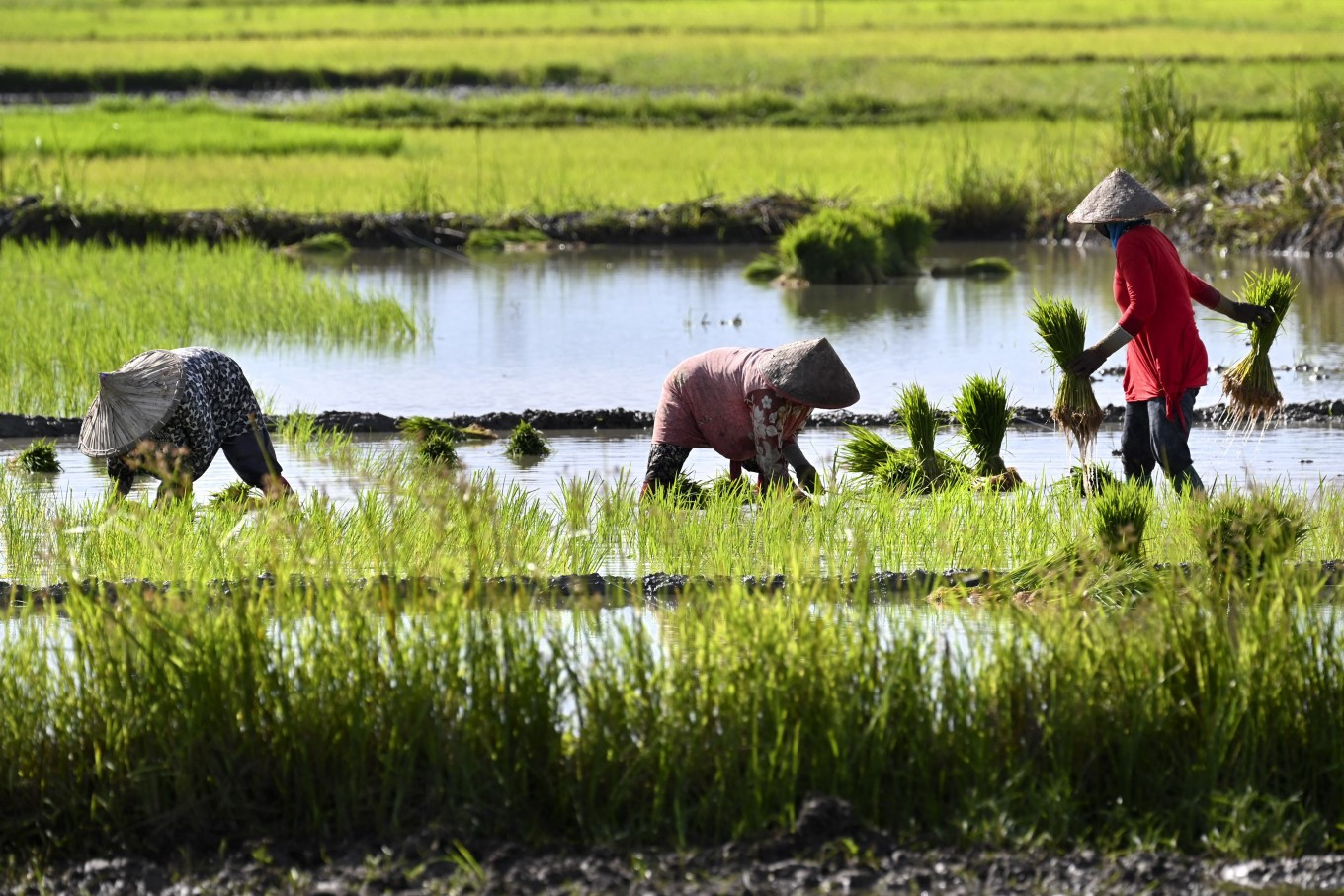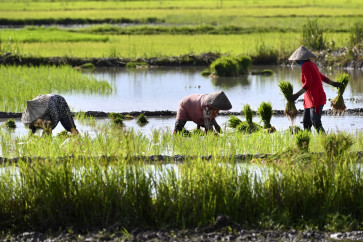Popular Reads
Top Results
Can't find what you're looking for?
View all search resultsPopular Reads
Top Results
Can't find what you're looking for?
View all search resultsStatistics can't cry, but farmers can
Beyond the figures and policies, humankind must come together in a collective vision that dares to look hard at the existential dilemma at the core of the climate crisis, and thereby love ourselves and our planet better.
Change text size
Gift Premium Articles
to Anyone
T
his world – our shared home where we stand, breathe and dream – is a place of astonishing beauty. Verdant rainforests unfold like emerald tapestries, ancient oceans pulse with rhythmic waves and the sky blazes with amber hues at dusk. Each is a fragment of a planet that has patiently shaped life over millions of years. Yet beneath this serene beauty lies a truth we can no longer afford to ignore: Our world is fragile.
We are living in what scientists now call the Anthropocene: a geological epoch defined by the overwhelming impact of human activity on Earth’s systems. This is not a distant academic concept, but a stark recognition that our presence is now etched into the very crust of the planet. The signs are all around us: melting Arctic ice, raging forest fires in the Amazon, catastrophic floods in coastal cities and a species extinction rate up to a thousand times higher than before industrialization.
In Zweites Buch der Unruhe (Second book of restlessness), poet and novelist Silke Scheuermann captures the pulse of contemporary anxiety with sensitivity. Her work does more than point to catastrophe. It also reveals the quiet beauty that endures, like a fragile twig pushing through cracked earth. In her poetry, climate change is not reduced to statistics or scientific reports, and instead becomes a deeply human, melancholic and poignant experience.
We now know that atmospheric carbon dioxide (CO2) levels have surpassed 420 parts per million, the highest concentration in at least 800,000 years, and global temperatures have risen by approximately 1.2 degrees Celsius since the preindustrial era. The consequences are unmistakable: prolonged droughts, increasingly violent storms, rising sea levels and growing food insecurity across the globe.
But are these numbers enough to awaken our conscience?
The beauty and fragility of the world are inseparable. In a single petal lies a symphony of evolution, of grace suspended before decline. In a bird tracing its path through a polluted city sky, there is a quiet tale of adaptation and loss. The disappearance of biodiversity is not merely a statistic, but the erosion of possibility itself: the vanishing of futures not yet born.
Our responsibility is not only ecological, but also ethical. We have not merely inherited the world from our ancestors; we have also borrowed it from our children and grandchildren. And within that loan lies the hope that we will act with greater wisdom.



















